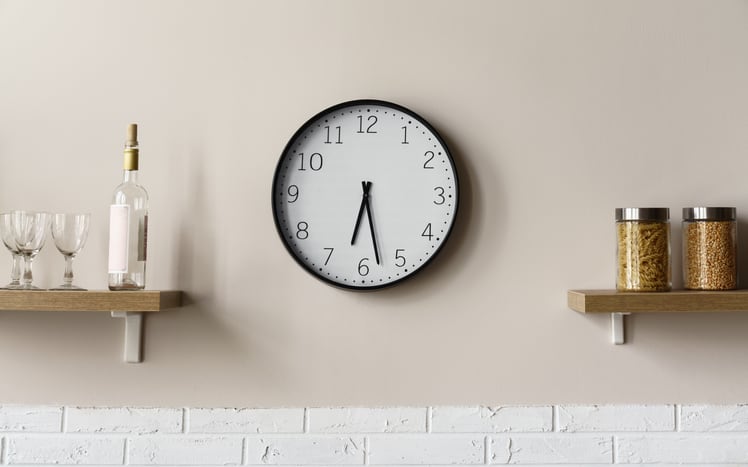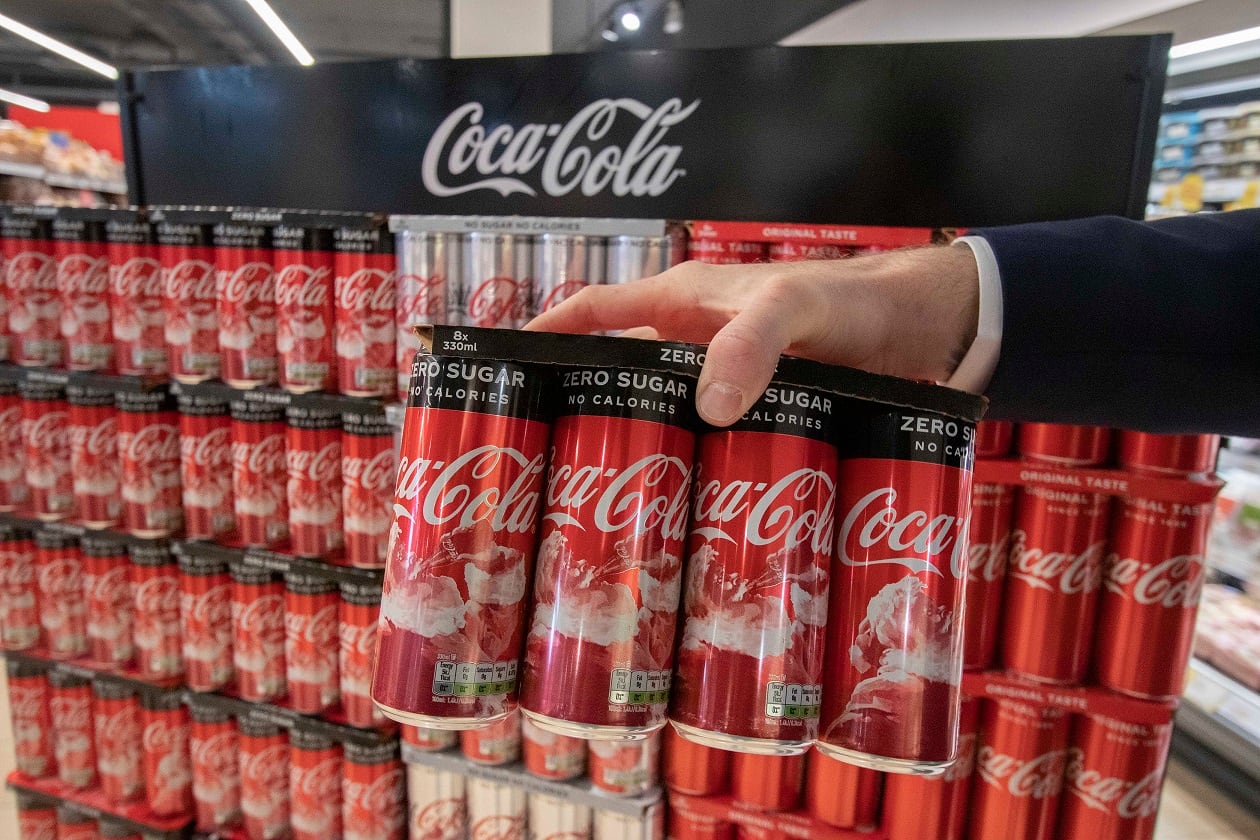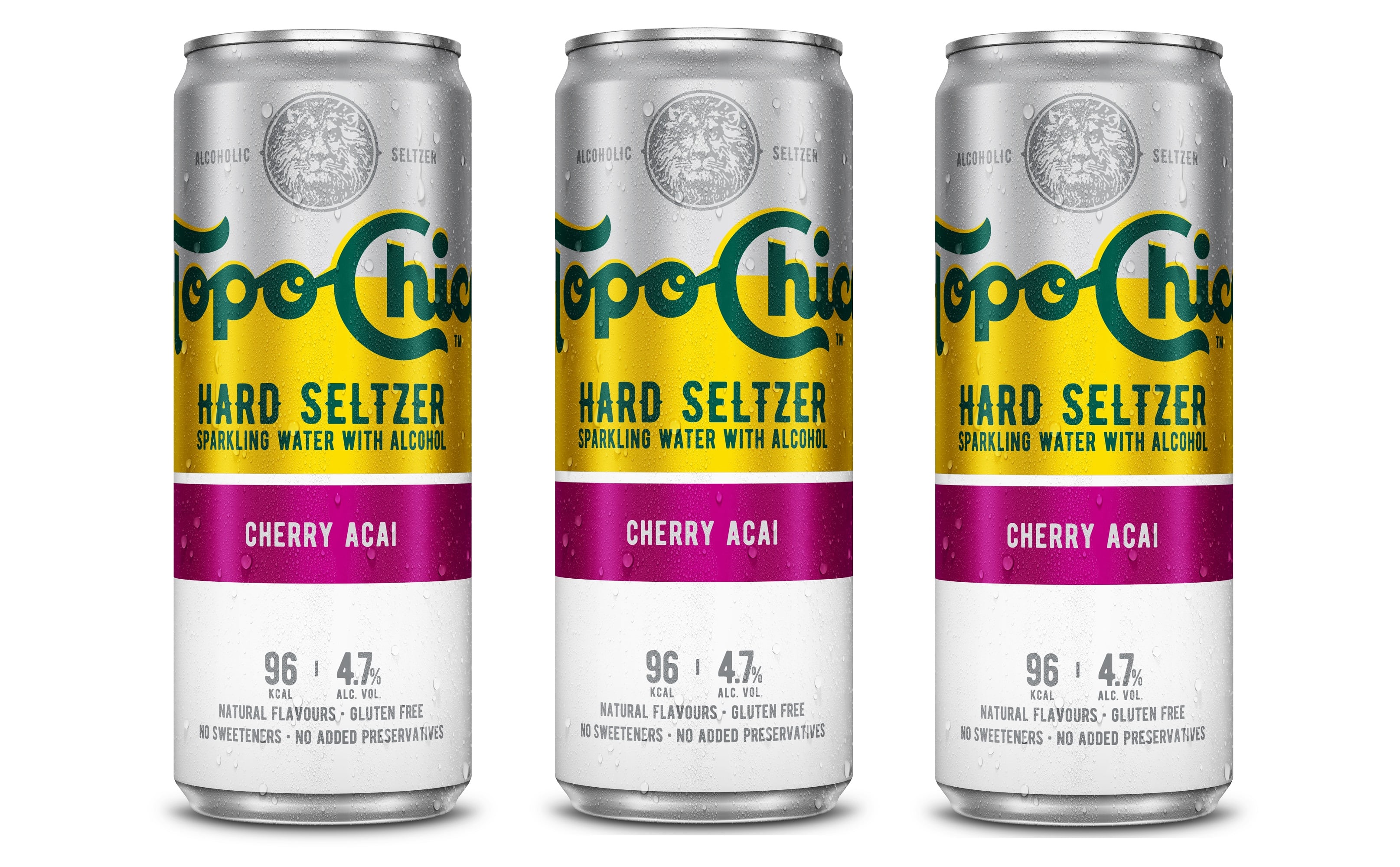While Coca-Cola is traditionally associated with its flagship Coke and other carbonated soft drinks, this has been changing considerably. The Coca-Cola Company has been clear in its ambitions to become a ‘total beverage company’ – offering beverages across various trending and growing categories including water, juice, dairy, and plant-based.
And Coca-Cola Hellenic Bottling Company – a bottler covering 28 markets across a diverse geographical footprint in Europe and beyond* – has focused this into a clear complementary ambition: “tapping into new, lucrative, and fast-growing categories is part of our strategy of offering a beverage for every occasion around the clock.”
Its portfolio now spans across the day: from a morning coffee to a hard seltzer in the evening. And across the day CCHBC now plays in some more unexpected categories: such as premium spirits and snacks. The result? "The broadest and most flexible portfolio in the industry," according to CCHBC.
Hard seltzer and alcohol
The diversification of the portfolio has been evident over the last two years: with the high profile launch of Topo Chico Hard Seltzer and Coca-Cola’s mega acquisition of Costa coffee, the world’s second largest coffee chain.
But in fact it is a process that has been going on over more than ten years. In 2009 CCHBC started a cooperation with Brown Forman on Jack Daniel’s, Finlandia and El Jimador – now covering seven markets. The following year it became the distributor of Edrington (Famous Grouse, Macallan, Brugal) – now covering 14 markets – and in 2016 it partnered with Gruppo Campari for Campari, Aperol and Grand Marnier across 14 markets).
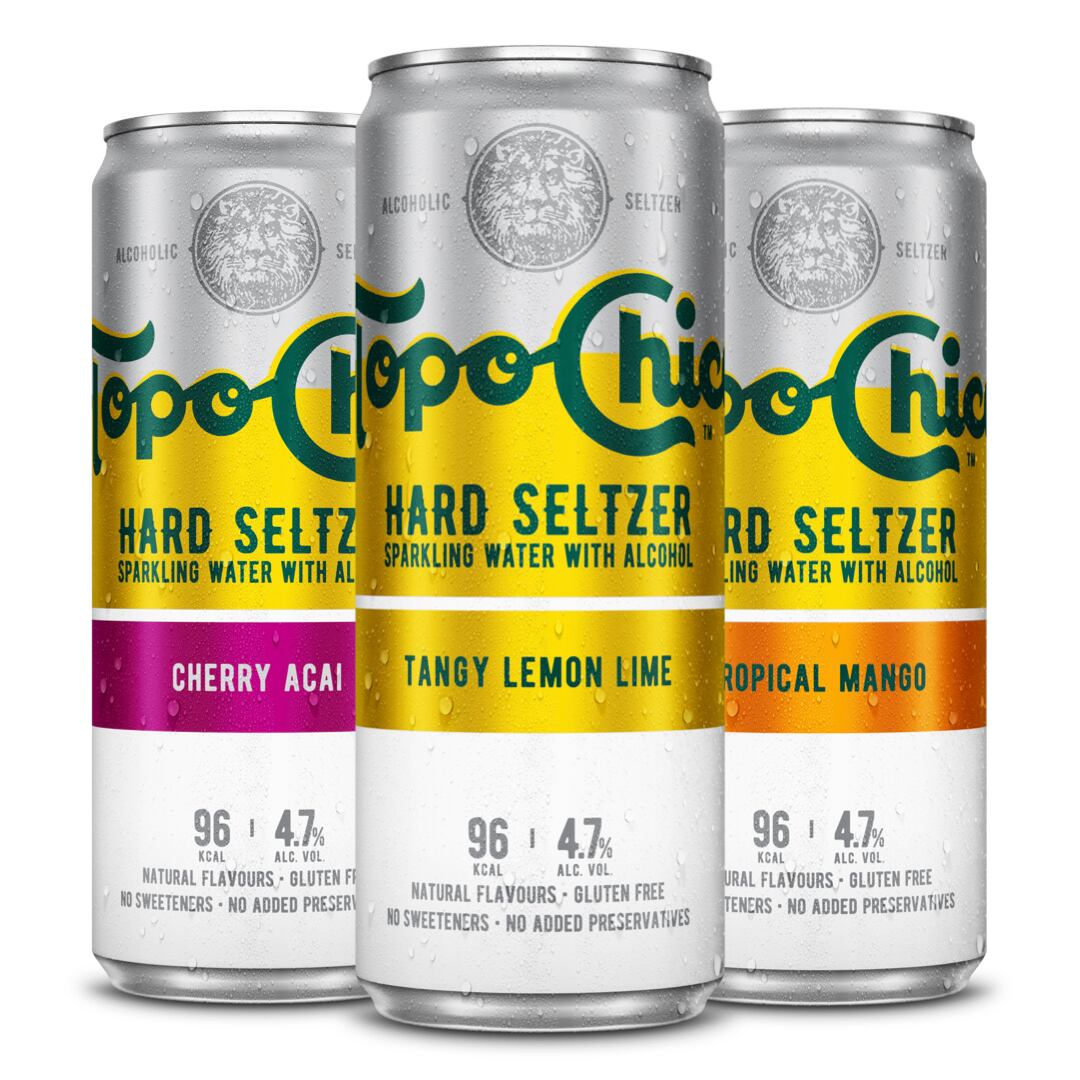
Hard seltzer is the most recent launch for CCHBC: with Topo Chico Hard Seltzer launching in five CCHBC markets (Austria, Northern Ireland, Greece, the Republic of Ireland and Ukraine) alongside Great Britain (under Coca-Cola European Partners).
The December debut of the brand in Europe came ahead of its launch in the US – scheduled for the first half of this year (mainly down to the practicalities of navigating a simpler system for alcohol beverages in Europe).
The 4.7% ABV hard seltzer brand is available in 330ml sleek aluminium cans in three flavors: Tangy Lemon Lime, Tropical Mango and Cherry Acai. Each flavor is gluten-free, has 96 calories and two grams of sugar.
With the meteoric success of hard seltzers in the US, the motivation of launching in Europe is evident: with the continent’s more developed markets generally following US trends.
Wake up and smell the coffee
Coca-Cola completed its $4.9bn (£3.9bn) acquisition of Costa coffee in 2019. Since then, CCHBC has been at the forefront of expanding the brand into new occasions – in particular with packaged products for home and RTD drinks for on the go. The portfolio now covers everything from whole beans to capsules to RTD products.
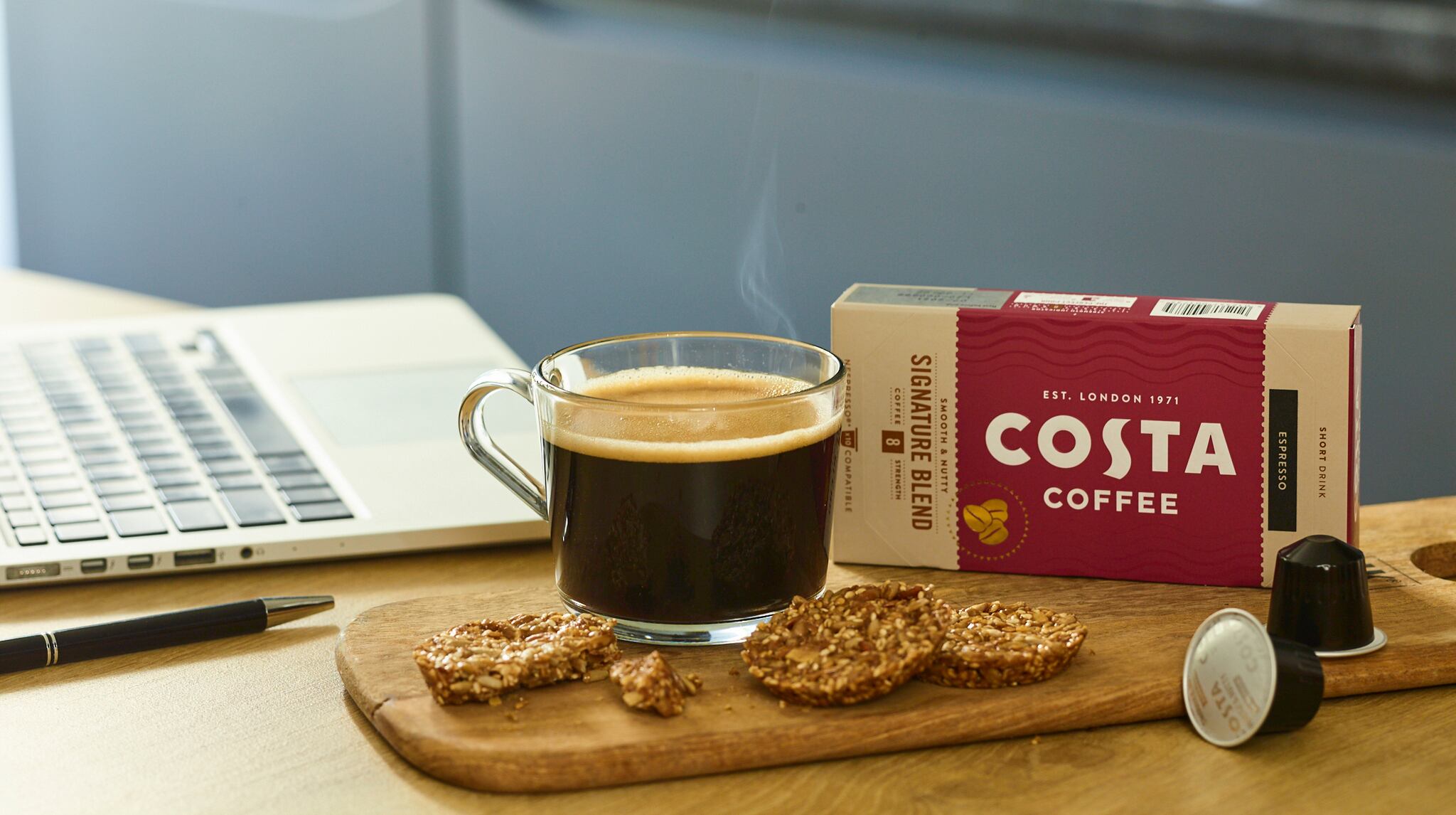
While coffee evidently fits into the morning occasion, innovations in areas such as RTD make it much more versatile, notes Prodromos Nikolaidis, Group Coffee Director for Coca-Cola HBC. There's also the chance for coffee to tap into the energy occasion, for example, as a pick-me-up during the working day.
“One of its attractions is the diversity of occasions on which it is consumed – hot or cold, at home, breakfast on-the-go, at work, in a restaurant, even in the evening as a cocktail mixer.”
Add all those occasions together and coffee represents a ‘significant growth opportunity’, with CCHBC estimating that the total coffee category in across its markets at around €35bn ($41bn).
From plant-based to biscuits
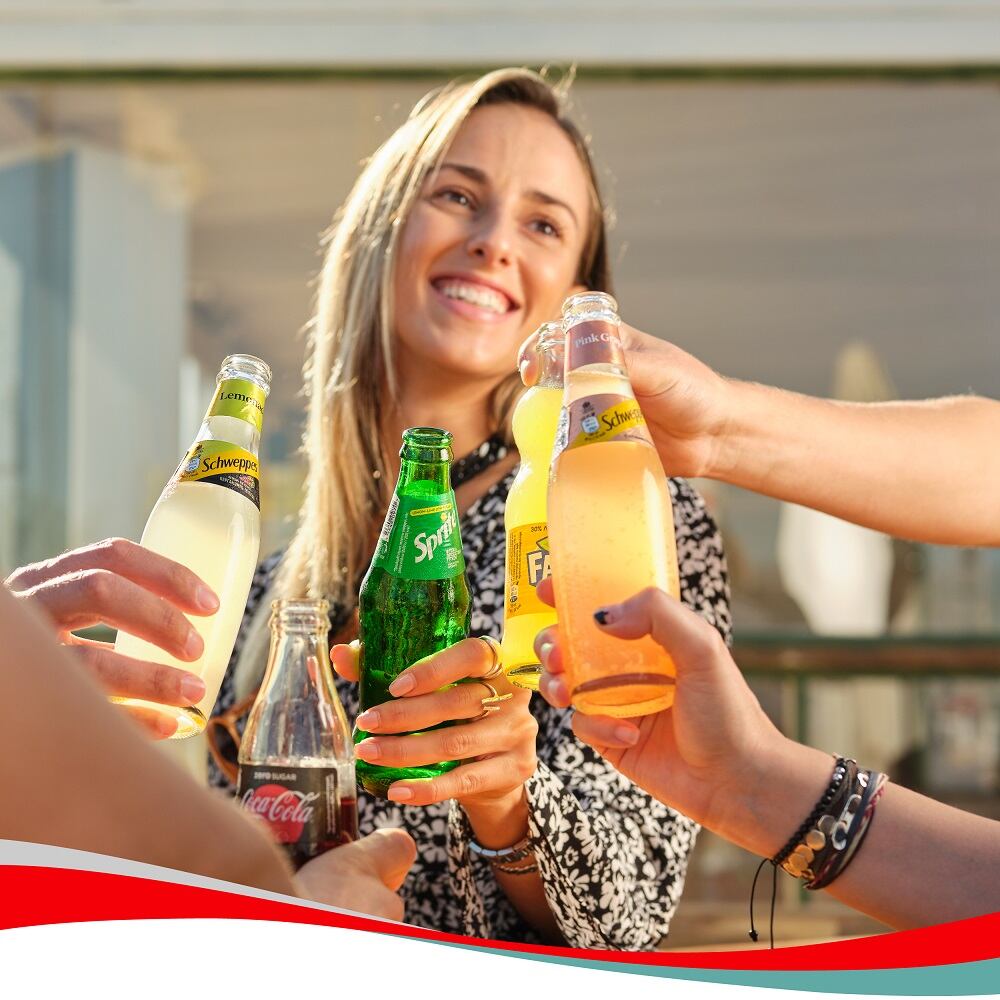
CCHBC’s portfolio now covers 100 brands across 12 categories. These tap into the several different occasions and drinking moments that consumers experience throughout a day, from early morning to late evening. Joining carbonated drinks, alcohol and coffee are also juice, hydration, energy, plant-based, ready-to-drink tea and snacks.
CCHBC entered the plant-based beverage category in 2018 with the launch of plant-based drink Adez (the brand was founded in Argentina in 1998, and brought to Europe in 2018 after Coca-Cola acquired it the year before): with coconut and almond based drinks.
In 2019, Fuze Tea launched across 27 CCHBC markets as part of the drink’s global expansion: with a fusion of fruit flavors, botanicals and tea extracts offering a ‘fresh, contemporary tea taste’.
And CCHBC acquired Serbia’s leading confectionery brand Bambi the same year. While this might seem like a wild card for a beverage company, CCHBC eyes up the chance of ‘creating opportunities for revenue synergies, complementary innovation and cost efficiencies in a relevant and adjacent category’. Bambi’s strong distribution network and established portfolio in strategically important channels such as traditional retail and hotels, retail and cafés was also attractive to CCHBC: with Serbia and the Western Balkans among its fastest growing regions.
'The broadest and most flexible portfolio in the industry'
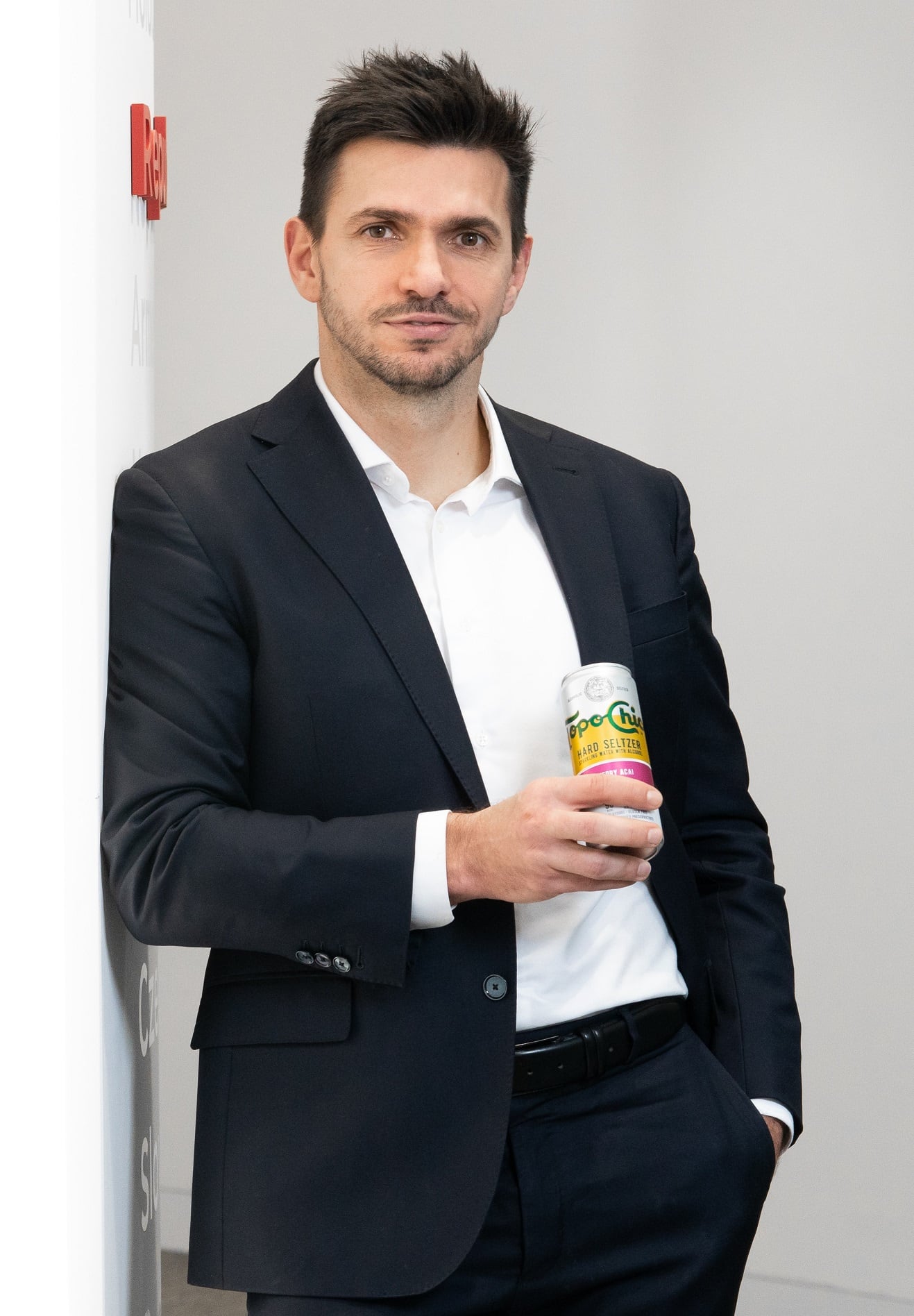
So what draws all these drinks together in one portfolio? CCHBC says its important to remember that sparkling drinks are still the foundation of its business. But it’s about evolving this portfolio to meet consumer needs: focusing on both affordable solutions for the current reality, as well as premiumization that remains a trend across many categories.
Vitaliy Novikov, Group Commercial & Customer Director, Coca-Cola HBC, said: “Our goal is to have a beverage for every drinking occasion around the clock, which has driven us to build the broadest and most flexible portfolio in the industry.
“The addition of Costa Coffee and Topo Chico to our portfolio this year adds exciting elements to this.
"Whether consumers are at home, on the go, at work or in a bar, café or restaurant, every category plays a role in driving value for our customers by providing the right beverage, in the right pack, in the right place.
“At the same time, we meet emerging consumer needs by evolving our portfolio for consumers who are seeking new flavours, fewer calories and alternative products such as a refreshing hard seltzer to enjoy unwinding after a long day of work, or socializing with friends”.
12 product categories for CCHBC
- Sparkling: the traditional component of CCHBC portfolio is being expanded with a wide range of flavors and zero offerings
- Adult Sparkling: a wide range of premium products that can be either consumed straight or by mixing them with premium spirits, offering indulgence. Brands include Kinley and Royal Bliss.
- Hydration: hydration is becoming a ‘complex category’ - ranging from basic thirst quenching to indulgent refreshment with flavoured waters, notes CCHBC. In response, it is expanding its hydration portfolio from plain to functional enhanced hydration.
- Juices: drive value share by winning in profitable segments.
- RTD Tea: bring unique flavors and great-tasting products to consumers.
- Energy: segmentation approach, providing a rich variety of energy drink propositions to satisfy different consumer needs.
- Plant Based: offer a delicious, no sugar, plant-based beverage line, great for breakfast drinking moment.
- Premium Spirits: help to accelerate the growth of its single-serve non-alcoholic ready-to-drink brands, as they better address important adult consumption occasions through mix activation. Premium Spirits create a compelling offering for HoReCa customers, offering one-stop-shopping and therefore, strengthening its customer relationships. This provides strong cross-selling opportunities for its core beverage portfolio in new, lucrative outlets.
- In 2017 CCHBC acquired Rézangyal in Hungary: a well-known pálinka (traditional fruit brandy); as well as MB Impex in Serbia (producer of the bitter liqueur Zlatni Pelin and the brandy Zlatna Rakia)
- Coffee: tap into a lucrative revenue pool of €35bn leveraging the premiumisation trend.
- RTD Coffee: capture ‘on the go’ drinking opportunities.
- Snacks: a relevant, adjacent category to its 24/7 portfolio, creating opportunities for revenue synergies, complementary innovation and cost efficiencies. CCHBC acquired Serbian company Bambi for €260m in 2019: giving it ‘leading iconic brands in a relevant adjacent category’. This includes biscuits, wafers and savory snacks with Bambi, Plazma, Wellness, Zlatni Pek, and Josh among its brands.
- Hard Seltzer: tap into a new category of great potential, providing deliciously crafted propositions for “Get Together” consumer moments, both “At Home” and “Away from Home”.
* CCHBC's markets are: Austria, Cyprus, Greece, Italy, Northern Ireland, Republic of Ireland, Switzerland, Croatia, the Czech Republic, Estonia, Hungary, Latvia, Lithuania, Poland, Slovakia, Slovenia, Armenia, Belarus, Bosnia & Herzegovina, Bulgaria, Moldova, Montenegro, Nigeria, North Macedonia, Romania, Russia, Serbia and Ukraine.

